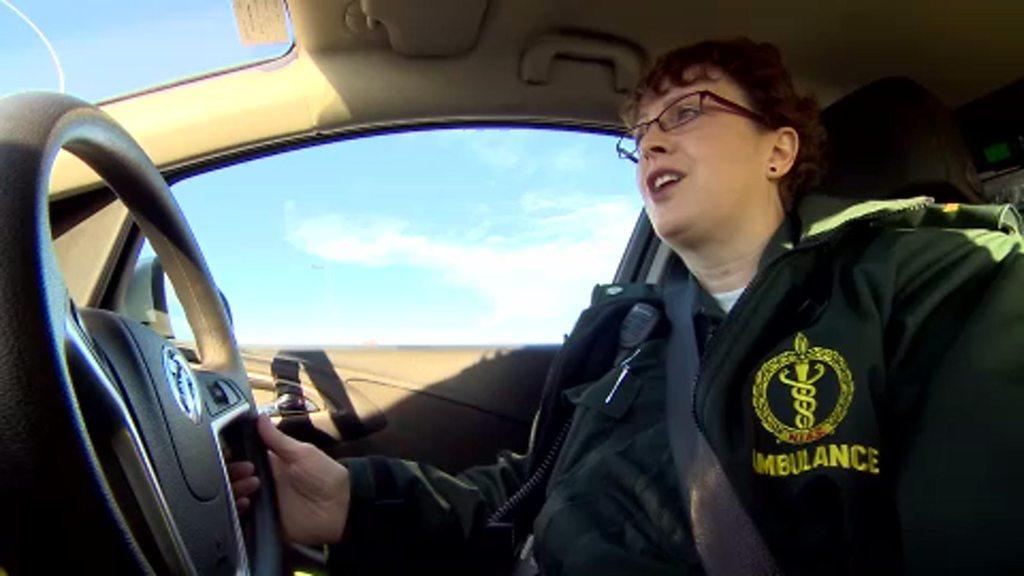A day in the life of a Northern Ireland paramedic
- Published
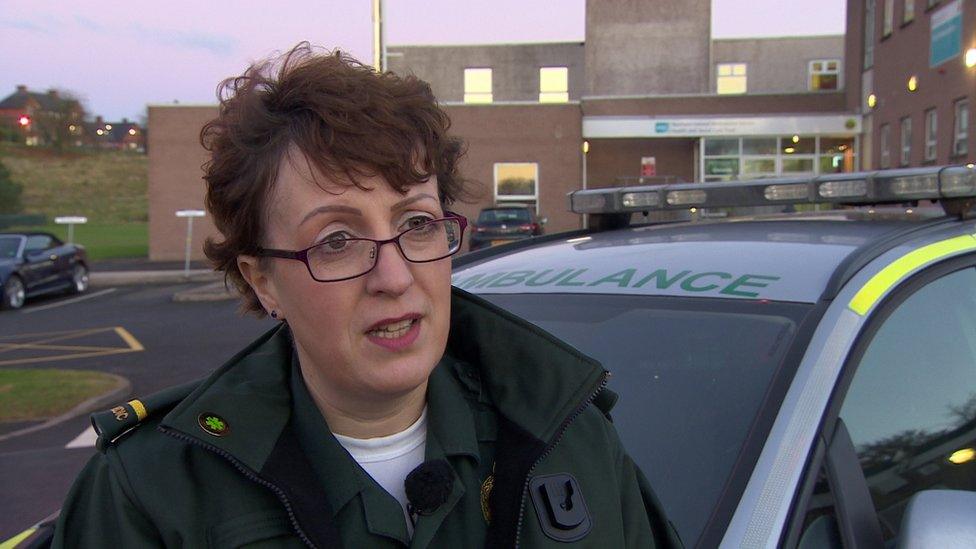
Jacqueline O'Neill works likes the 'not knowing' aspect of her job
Jacqueline O'Neill works as a paramedic in Belfast. It's a job she's been doing for 12 years. Her husband works in the control room; their two and a half-year-old son loves ambulances. It's a family thing.
We've been out on the road for just three hours.
It's midday and already she's been to a road traffic accident, a fall and a suspected case of septicaemia.
As we respond to another 999 call, she tells me why she likes the job.
"I like the not-knowing what is going to happen next. You literally go from one call that is life-threatening or where someone has died to something that is totally ridiculous like the time a man called me after he'd stubbed his toe."
'Cajoling and checking'
Meeting targets is part of the job.
Unlike their counterparts in England, the Northern Ireland Ambulance Service is performance managed on a target of reaching 72.5% of category A calls within eight minutes.
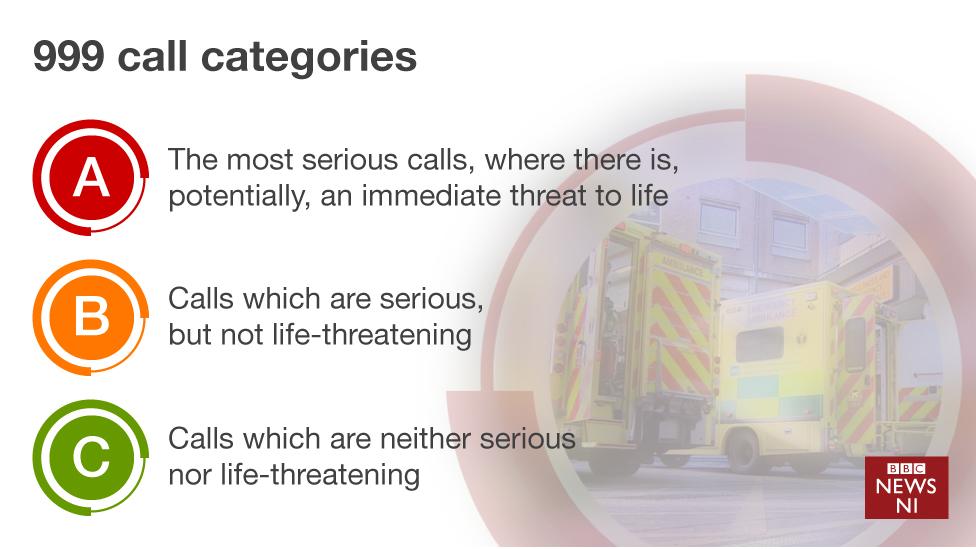
As I discover, not all 999 calls are worthy of emergency status.
It puts unnecessary pressure on a service that's already overstretched. And it's for that reason that the ambulance service wants to review and change how it responds to emergency calls.
Next stop is Millfield in Belfast, where Jacqueline has been called to a crash.
The woman who was driving isn't injured but her husband, a passenger, has left the scene. He vomited getting out of the car and appears disorientated.
Within minutes the police arrive and the woman's husband is found slightly shaken. Vitals are taken, a wound is dressed, statements are given and all the while Jacqueline is comforting, cajoling and checking.
'David Attenborough'
It's non-stop but Jacqueline appears to take it all in her stride.
Jacqueline says the biggest part of the job is talking to people. For those who know Jacqueline, that comes easily.
During my second day of filming, out with the ambulance service's rapid response vehicle, the atmosphere is quiet and more serious.
There has been a serious road crash. A police helicopter is dispatched and within minutes we find ourselves at the Royal Victoria Hospital's emergency department.
Several people are injured with what we are told are life-threatening conditions. One woman is in resuscitation.
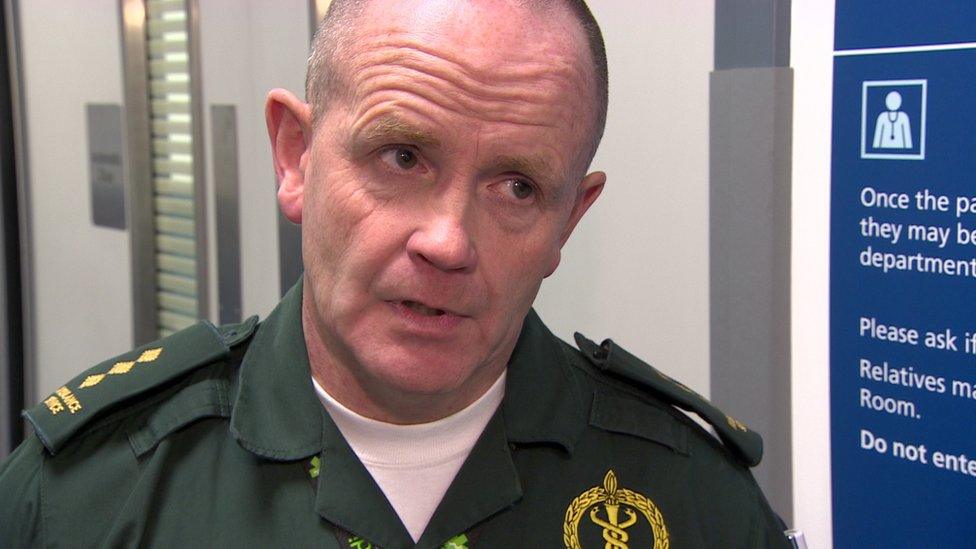
Station officer and paramedic John McClintock says they are a 'strange breed'
The paramedic officer is John McClintock. His small stature masks his energy and passion for the job. Ashen-faced and with eyes welling up, he describes the scene.
"This morning I faced people fighting for their lives and some people not fighting for their lives.
"I had to start prioritising patients, deciding who goes first - everyone has a loved one there and everyone would want their loved one to go first. But unfortunately we have to make that decision.
"Then you hear the screaming, agony and pain. You know people are fighting for their lives.
"Someone today will get a knock on the door - this is the reality of our job.
"We are a strange breed. It's a wonder David Attenborough hasn't done a programme on us.
"I suppose we have a black humour that protects us to a certain degree. The problem is when you get back home the emotion starts to hit you.
"Nights you don't sleep, you question if you did enough - you question life. But the stability you get is from your family at home."
Language issues
An hour later, I'm back with Jacqueline in the rapid response vehicle and heading across to east Belfast.
A woman has dialled 999 as her daughter is vomiting.
At last Jacqueline faces a challenge.
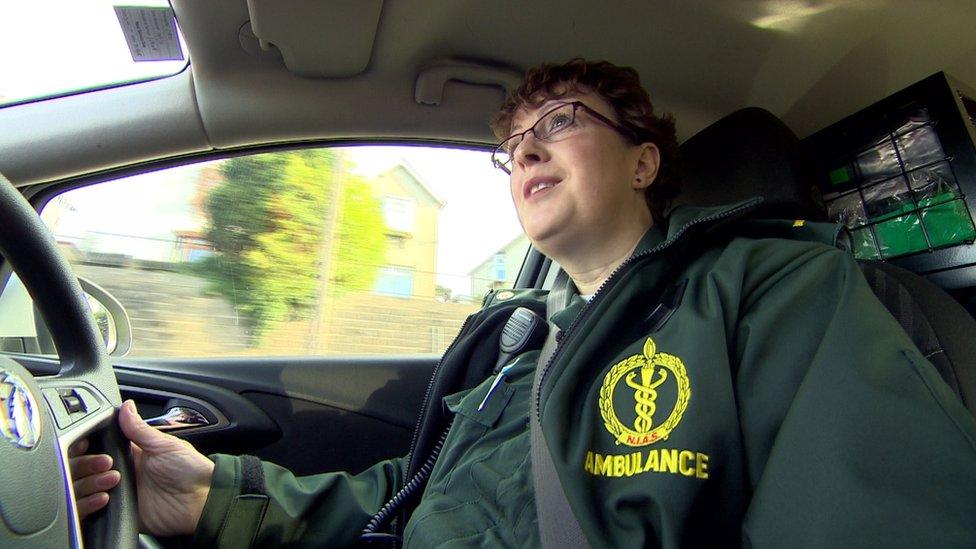
Jacqueline O'Neill going solo in a rapid response vehicle in Belfast
As she comes out to collect more equipment, Jacqueline tells me that no-one in the house speaks English.
"The lady is a foreign national and she doesn't speak any English.
"We have the language line available if necessary but this time I have been able to cope."
My 24 hours with the ambulance service has been an education. It's busy - sometimes dangerous.
While those I spoke to said the role was tiring even frustrating - no-one said they'd walk away from what is an obviously extremely tough profession.
- Published30 November 2016
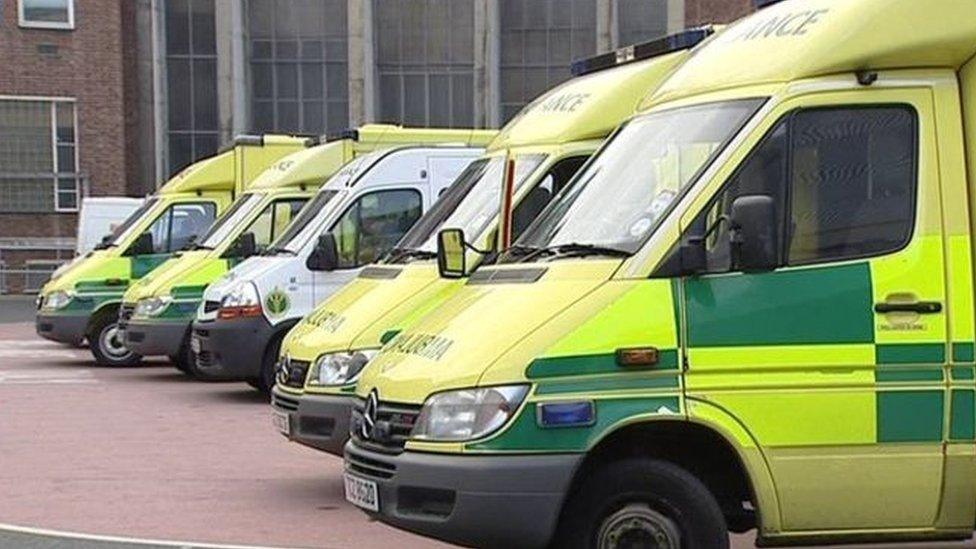
- Published30 November 2016
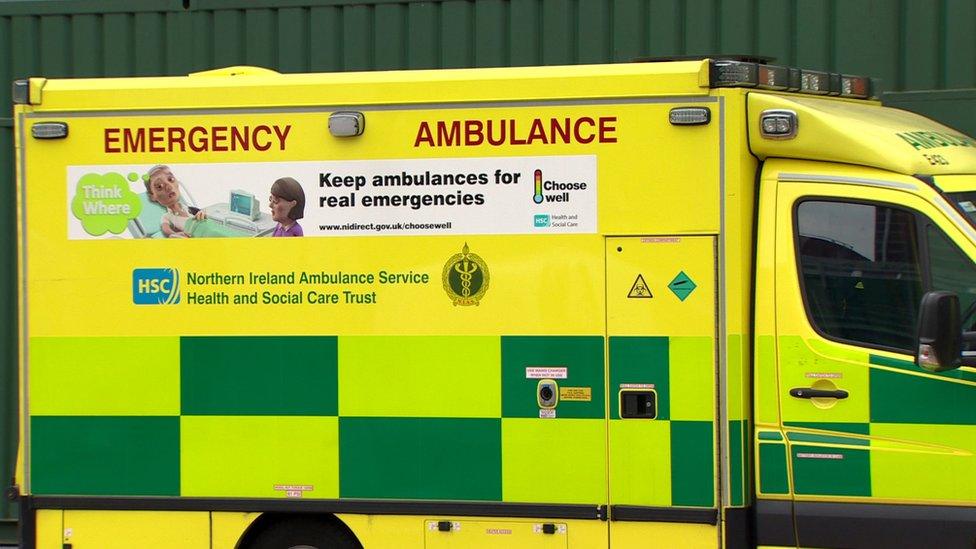
- Published30 November 2016
